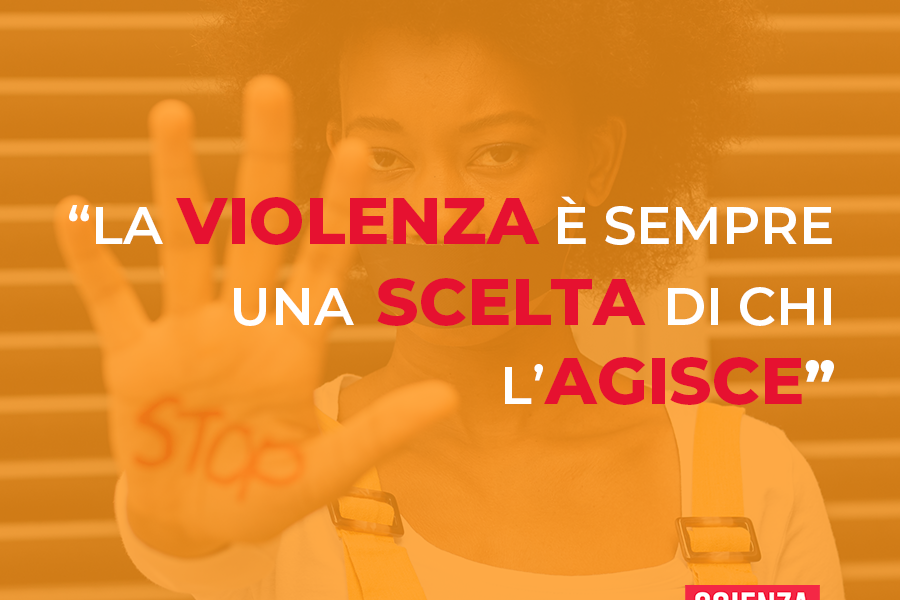
25/11 – International Day For the Elimination of Violence Against Women
Having an exhaustive picture of how many victims of gender-based violence there are today is still far from possible. In Italy, about one woman every three days is killed by a partner, an ex, or someone she was related to for family reasons. These femicides, or murders of women because they are women, are not isolated cases, but the result of the masculinist and patriarchal culture in which we live.
Gender-based violence is a structural phenomenon of our society and functional in the maintenance of power disparities between men and women. Over time, male violence, has been normalized to the extent that what is abnormal has been made normal, and gender stereotypes are still widespread within our societies justifying controlling and possessive behaviors towards female partners. At the same time, they fuel expectations that frame women in the roles of wives and mothers, dedicated to care work or in the roles of seductresses, becoming mere sexual objects. Women have been educated, over time, to endure domestic violence in honor of marriage or for the ‘good’ of children, while these should be immediately moved away. Frequently, the shame to expose themselves prevails, fear leads to silence, and often economic dependence on the male partner leads to no choice. Gender-based violence is a complex and specific phenomenon and includes physical, sexual, psychological, economic violence and stalking.
According to ISTAT data, in Italy, 31.5% of women have been victims of some form of physical violence and 21% have experienced sexual violence. However, we must keep in mind that about 86% of violence is never reported often because of the social stigma involved.
Today, November 25, is the International Day For the Elimination of Violence Against Women, which is essential to highlight the systemic and widespread nature of gender-based violence and to remind to all that violence is always a choice of the perpetrator, as we are reminded by the Anti-Violence Centers whose work in our territories is of paramount importance.
This day also serves to emphasize that gender-based violence has no nationality, country or culture. According to some studies, migrant women are less likely to report cases of violence for fear of losing their jobs, documentary or residency status, and for fear of being deported. For these reasons, they are at high risk of sexual and domestic violence.
According to “Safe Women in Migration” a study by ISMU Foundation, women are more exposed to violence along their migration route, and in the Mediterranean one about 90% of the women surveyed said to have been raped during the journey.
Another phenomenon is the sexual exploitation of migrant women deceived and trafficked to Italy from other parts of the world.
As described by the Osservatorio Interventi Tratta, this is characterized by the coercion of the person to provide sexual services for payment, the use of physical or psychological violence and threats against the person herself or her family members, the indebtedness of the victim to her exploiters for the journey, and the obligation to transfer the proceeds of exploitation to criminal networks.
If you are a victim of violence, regardless of your background, you can seek help at 1522, a 24-hour free number that offers a multilingual information service on the public and private Anti-Violence centers closest to you. If you are a victim of sexual exploitation, call the free, multilingual 24-hour number 800290290.


